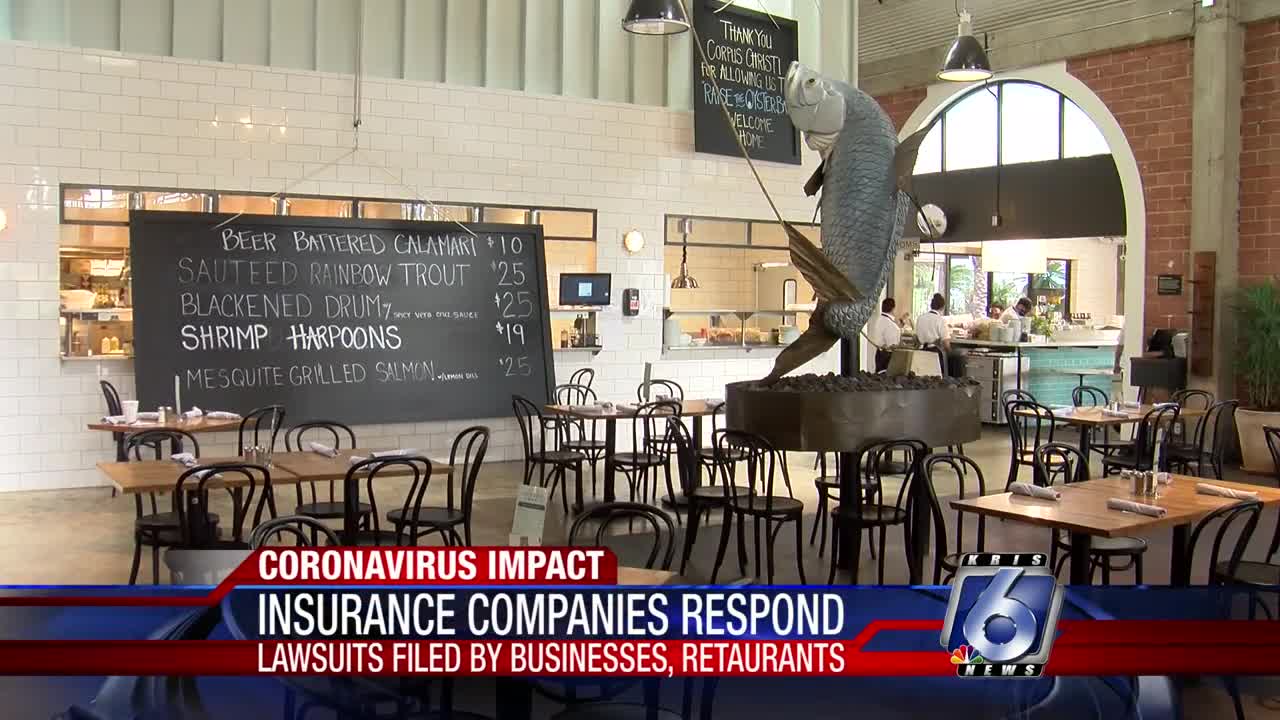Many area restaurants, small businesses, and private healthcare facilities have filed lawsuits against insurance companies after claims for damages due to the coronavirus pandemic were denied.
The Insurance Information Institute out of Atlanta, Ga., tells KRIS 6 News that business interruption insurance claims are just not a South Texas issue; they are a nationwide issue.
“When you have that type of magnitude, and when you have that type of unpredictability, it is not an insurable event. So for that reason, and I can understand, and certainly these are challenging times for all businesses, we are looking for solutions,” said Insurance Information Institute CEO Sean Kevelighan.
To provide a federal backstop for coronavirus insurance claims, there is a proposed bill sitting in Congress right now that would set up a federal fund to pay these claims.
“This is something that is a relief program for consumers who need this financial relief and need the federal government to help step in and provide the solutions at this time,” said Kevelighan.
The Insurance Information Institute says most standard business interruption policies have specific exclusions for virus or bacteria.
“This type of event is so unmanageable in some ways, unpredictable, and that is also uninsurable," Kevelighan said. "We can certainly understand and respect people being frustrated in these challenging times. That is where we want to help their frustrations by working towards and encouraging government solutions."
If insurers are forced to pay those claims retroactively, it would cost anywhere from $150 billion to $380 billion each month.
While these policies may cover revenue losses from hurricane damage, lightning strikes or cars crashing into buildings, they either exclude or do not specifically cover a global pandemic, however much it may interrupt business.
Business interruption insurance does not cover:
- Broken items resulting from a covered event or loss (such as glass)
- Flood or earthquake damage, which are covered by a separate policy
- Undocumented income that’s not listed on your business’ financial records
- Utilities
- Pandemics, viruses, or communicable diseases (such as COVID-19)

